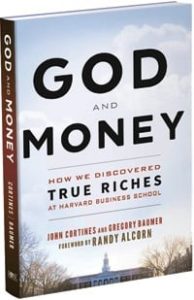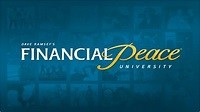Your financial goal should never be either financial security or financial independence. Instead, your goal should be financial freedom! Before we go further, let’s see why I write that since so much of the world sets financial security financial or independence as its goal.
Financial Security
Simply put, short of becoming a billionaire, hoarding your wealth and taking no risks, you can’t even come close to real financial security. You might not even make it even then. We live in a very uncertain world and, as the recession of 2008 should have taught us, financial security is largely an illusion.
Financial Independence
To examine financial independence, you really need to ask yourself, “Independent from what?” If it is independence from work with no savings and a hope social security will be enough, you may gain “financial independence” but have a very uncertain future. On the other hand, if it is independence from worry, you are back to the same problem as with financial security, short of investments and saving in the billions with the same conservative or risk free investment approach. Financial independence is either a word game or is illusory.
There is a realistic alternative – financial freedom.
Financial Freedom
Financial freedom means you are free from the imprisoning grip of money and greed. It also means that you are sufficiently prepared with wise financial decisions that you can face most major life events with minimal financial stress.
No, you will never “be in control” and the chances that there will never be any financial risk or shock in your life is exceedingly small. However, knowing that you have made wise choices for saving, spending and planning can remove much of the pressure and most of the stress of the inevitable hard times.
Here are the logical and Biblical steps you can take toward financial freedom.
1. Put God first
He owns it all, Psalm 24:1, so you should acknowledge His priority. If someone loaned you his car for a day and you needed it a second day, what would you do? Of course, you would ask the owner. If you have any uncertainty about a financial decision, a purchase, whether and how much you should give, then ask the Owner, God.
God has made it clear that what we have is for His glory, not for our hoarding. 2 Corinthians 9:10-11. God has told us He expects us to give. 2 Corinthians 9:8-13. We should excel in the grace of giving. 2 Corinthians 8:7. In fact, He has dared us to give and told us we would be blessed if we did. Malachi 3:10.
How much should you give? See What About Giving and Tithing While Paying Down Debt? and make your own decision, but I suggest that tithing on gross income should be your minimum giving. I have heard 10% referred to as the training wheels of generosity and I believe that is an accurate label.
You need to also consider what you may be giving up by not giving – blessings. That is the reality of the law of reaping and sowing. See Galatians 6:7 and 2 Corinthians 9:6.
2. Put your immediate future second
Save for that proverbial rainy day by creating an emergency savings fund. This is not money invested in stocks or bonds, it is held loosely and is ready for the inevitable broken appliance, roof leak, car breakdown or accident, etc. Most Americans live without adequate emergency funds. Many live paycheck to paycheck and risk loss of their home or eviction if there is a serious illness, loss of a job or other surprise in life. We have been told that we will face trials and troubles, so we certainly should be prepared. John 16:33. This is one way you can prepare. Just think about how differently people would have reacted to the Covid-19 shutdowns if they had had a full six months of living expenses saved and accessible!
The emergency fund should cover up to six months of your take home pay. It may take a while to build that fund up, but the freedom you feel when you know you have that fund to fall back on is great.
Look at your career and ask honestly if it is here you want to spend thousands of hours, literally years of your life, for the next 30 to 40 years. Is it going to allow you to reach your financial goals? If not, seek wise counsel about a job or career change.
Another step on this topic is for you to spend less. Most Americans spend all but a very small percentage of their disposable personal income. The national savings rate is currently at approximately 6.2%, well below the long-term average of 8.82%. Even the long term average is too low. See Save More – 10% Isn’t Enough.
Next, get rid of debt. Once you have an emergency fund and slow down your spending, you should have money left over. Apply it to paying down debt faster than the “minimum payment” of the credit card you may have. That minimum payment is designed more to enrich the credit card company than help you. See Getting Out of Debt, The Disaster of Debt, and Americans in Debt for insights into the debt problem in America.
Eliminate multiple credit cards, start living by paying cash and set your finances on a course to give, save, and live within your means. See Do It the Easy Way And Pay. One strong recommendation is for you to consider setting a “finish line.” Actually, there are two finish lines you should consider. The first is a limit on the income you need to live reasonably. Spend that and either save or give away the rest. Once you set that goal, stick to it regardless of the changes in your income. An amazing example of this lies in the life of Alan and Katherine Barnhart. Watch a short video telling part of their amazing life story to see how this type of finish line can bless you and your family.
Notice that Alan Barnhart studied the Bible and tried to learn everything that God had said about money and possessions. That as and still is a wise course of action. You can have it easier than Alan Barnhart did. Read God and Money by Gregory Baumer and John Cortines.

A second finish line that can be set by you is in the answer to the question, “How much is enough?” No, the answer is not, “Just a little bit more.” This second finish line applies to income, assets, lifestyle and every material aspect of life.
I strongly recommend that either or both of these finish lines be set early and be set with your witness as a believer in mind. It would also be very helpful to involve others in setting your finish lines and in holding you accountable to avoid the temptations of wealth. 1 Timothy 6:9-10.

The final step is what helps you do each of the earlier steps here as well as give to God. Create a budget. Learn how through taking a Financial Peace University course at Idlewild Church or through Crown Ministries and their Money Map.
3. Start looking a bit farther ahead and start preparing
Life doesn’t stop once you have some savings or even once you have a full six months set aside for emergencies. During the time you were saving for that emergency fund, your car got older, and so did all of your clothes, appliances, and home. Even you got older!
Contribute to a 401(k) if available, create one or contribute to an IRA if no 401(k), 403(b) or other tax-advantaged savings program is available. Contribute as much as you can, especially if your employer matches part of your contributions – it is “free money.” Actually, it isn’t free, but people who do not contribute and get a match are literally giving up money that is or could be theirs.
Start a 529 college savings plan if you plan on having children. This is a complex topic, far beyond the scope of this article, but what you need to know is that money can grow tax free to help you put your children through college using a 529 plan. Call The Idlewild Foundation at (813) 264-8713 for further information.
4. Look far enough ahead to see what might happen at age 60
By age 60 you should be well on the road towards retirement if you have not already reached that milestone. See Your Financial Future by the Decade.
Start looking at life after you retire. Will you have enough money for the lifestyle and activities you want? This is a hard calculation since you cannot possibly know what inflation rates will be in the future, hat investment income might or might not happen, what unexpected events like accidents, medical emergencies, job losses, family problems, etc. might happen. Do your best and plan ahead knowing that there will be some speed bumps in your road of life.
Consider medical insurance and when you will start Social Security? Currently, Medicare starts at age 65. There is a calculator available that tells you exactly when you become eligible to enroll. But Social Security is a moving and variable target. In 2018 the full benefit retirement age was moved to 66 years and 4 months. The full retirement age will continue to increase in two-month increments each year until it hits 67 for everyone born in 1960 or later. Make sure your plans take into account medical expenses and insurance costs because those can be disastrously high.
Another tough topic comes up here; long term care insurance. No one is guaranteed a physically active, healthy life right up to his or her final day. Physical weakness, illness and accidents do happen and many are unprepared for the high cost of care at home or the high cost of assisted living. As a result, many people risk becoming a financial burden on their children. See Long Term Care Considerations and More on Long Term Care.
What are you going to do with your time? Sitting at home watching TV, pulling weeds, trimming plants and reading may be okay for a week or two, but you will need more than that for your retirement years to be meaningful. Consider that God has told us that all of our time is also His. Whatever you plan on doing, plan with Him in mind. Luke 12:13-21.
Consider a second less-stressful career (if necessary, either financially or because you want to work) or a volunteer position (if financially possible) so you can serve God and continue to make a meaningful contribution to our world. If your second career is expected to be taking care of grandchildren, plan on having enough money to be active with them and help them experience some of God’s amazing creation.
5. Keep looking farther out
The old saying that old age isn’t for sissies has been proved true. Declining physical and at times, mental, abilities, rising prices and a rapidly changing world make it hard to prepare. It is hard, but there are a few things that can be done to take some of the sting out of a hostile world.
There are many things you can do to prepare your home for your senior years. Many of those preparations can be addressed with minimal expense. See Making Your Home Senior-Friendly and Aging in Place.
If you have not already done it – and you should have – have an estate plan prepared, one that includes a will or trust, consideration of your beneficiary designations on investments and accounts, a durable Power of Attorney, a healthcare surrogate designation and possibly even a living will. See Documents (and Protection) Everyone At Every Age Should Have.
6. Look toward eternity
Jesus gave up enormous wealth, in fact He gave up infinite wealth and took on great suffering, to have you. In return, He asks for your faith in Him. And He asks that you recognize Him as your Lord and Savior. Once you have understood that, the unlimited scope of eternity compared to the brevity of life becomes apparent and you learn that while you cannot take it with you, you can send it on ahead as Randy Alcorn puts it.
Matthew 6:19-21
19 “Do not store up for yourselves treasures on earth, where moths and vermin destroy, and where thieves break in and steal.
20 But store up for yourselves treasures in heaven, where moths and vermin do not destroy, and where thieves do not break in and steal.
21 For where your treasure is, there your heart will be also.
Make sure that your estate plan does not give too much to you children and remove their work ethic or give too little to God. See Giving to Your Grandchildren, Are You Giving Your Kids Money to Burn? and Coming Soon to a Millennial Near You.
If you have questions about any of these very involved topics, please feel free to call The Idlewild Foundation at (813) 264-8713. The Foundation exists to motivate, educate and facilitate generous giving and Godly stewardship. It would be our blessing to serve you.

About the Author

John Campbell has retired from a 40-year legal practice as a trial attorney in Tampa. He has served in multiple volunteer roles at Idlewild Baptist Church in Lutz, Florida, where he met Jesus. He began serving as the Executive Director of the Idlewild Foundation in 2016. He has been married to the love of his life, Mona Puckett Campbell, since 1972.
